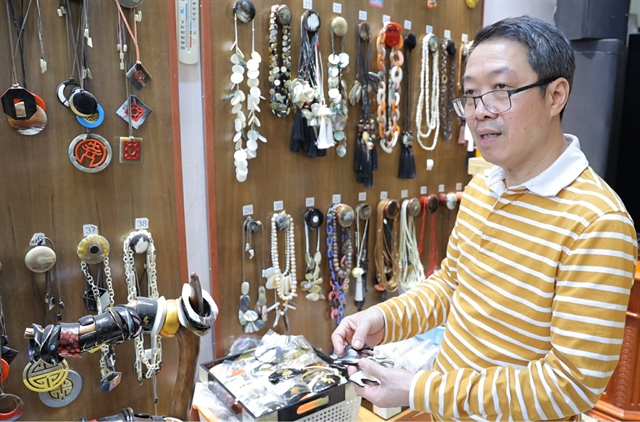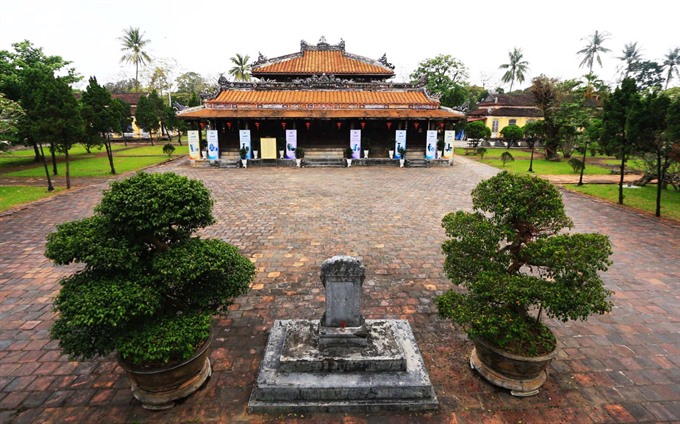 Life & Style
Life & Style

The central province of Thừa Thiên-Huế has plans to move items managed by the local Museum of History in order conserve the buildings that hold the museum.
 |
| The Nguyễn Dynasty (1802-1945) Quốc Tử Giám (Imperial Academy), home to the Museum of History. VNS Photo Nguyễn Văn Sum |
THỪA THIÊN-HUẾ — The central province of Thừa Thiên-Huế has plans to move items managed by the local Museum of History in order conserve the buildings that hold the museum.
The buildings that currently house the museum were built by the Nguyễn Dynasty (1802-1945) that served as the Imperial Academy.
The provincial People’s Committee has reserved a 7,500sq.m plot in the city of Huế as well as some VNĐ14 billion (US$600,000) from the local budget to construct a new building for the museum.
The committee said the change is necessary to protect large items, including airplanes used by the US forces during the war. Because space was limited, the planes have been exhibited outdoors for decades.
The historic building will be returned to the Huế Monuments Conservation Centre, a local government body that manages all relics built by the dynasty in the city. The monument is in poor shape and needs urgent conservation work.
The removal is expected to be completed in three years. The museum has been lodged in the building for 40 years, accommodating about 30,000 items.
The Imperial Academy (Quốc Tử Giám) was built in 1908 during the reign of King Duy Tân. It had two central buildings in the front and back, which were used as halls. Buildings at the two sides served as classrooms and offices for the principal and his assistants.
The original academy was built outside the citadel in 1803 by the dynasty’s first king, Gia Long, and later moved to its current place inside the citadel to meet increasing need.
The academy is a significant part of the country’s education history and has great architectural value as well. It was the second royal academy built in the country, following only the one built in Hà Nội during the imperial time. — VNS




